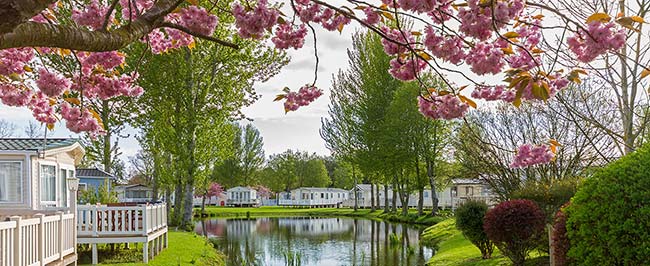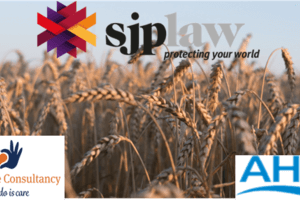This is the first in our five part series on achieving the maximum value from your park business.
The series is made up of the following articles:
- Part 1 - Sustainability and Profitability
- Part 2 - Succession Planning
- Part 3 - Is incorporation the next step?
- Part 3 - Selling a business
- Part 4 - What to do with the proceeds
In this article we look at how to maximise the value of your park business.
Even if you have no intention of selling your park business, it is important to take a step back from the business and consider what a potential purchaser might see and more importantly what he might be looking for. Taking this approach will improve the business for you, the existing owner and will make it more appealing for subsequent owners in the future.
What does an outside investor want?
Regardless of the type of business, an external investor will want to see two things from the target:
- Sustainability; and
- Profitability.
In the process of advising park businesses and their owners daily and on the sale and purchase of park businesses, we see what is important to investors and what makes an investor drive the price down or worse put them off completely. These things not only reduce the value of your park business but they also increase the transactional costs of selling your park business.
If the issues were dealt with in a timely manner before the sale then the target would pay for it and in all likelihood recover the VAT associated with such costs plus the expense will be paid for pre-tax. If it is left to the last minute the purchaser may knock the cost of such expense off the purchase price so hurting you, the seller, directly in the pocket. The increase in transactional costs is nearly always felt by the seller and not the business.
How can I achieve a sustainable and profitable business?
To answer this question we need to consider what an outside investor will look at to measure profitability and sustainability. The potential investor uses the due diligence stage of a deal to assess, amongst other things, the business's profitability and sustainability and also the business's potential.
The areas an investor will be interested in are as follows:
- Ownership and finance
- Who owns the business? Do they have the ability to sell the business?
- How is the business financed? Overdraft facility, loans, mortgaged, working capital etc.
- Can the cash flow be improved by dealing with credit control properly?
- Park documentation
- Does the business have pitch licence agreements in place with each individual caravan owner? Are they signed and dated?
- When was the last time you updated your park rules? Are they incorporated into the pitch licence agreements?
- If you are a holiday park owner, do you hold an annual audit of the residential addresses for each caravan owner? Where is that information and evidence stored?
- Property
- Who owns the land and what rights are there over it?
- Does the property have all of the necessary planning consents?
- Employment aspects of the business
- Are good terms and conditions and staff handbooks in place?
- Does the business have habitual problems with employees who exploit the terms they are on and the way they are applied?
- Are there proper disciplinary and grievance procedures in place?
- If the answer to any of the above is no, think about whether or not you need to tighten up your employment procedures.
- Business documentation
- What written contracts do you have? How long are they for? What termination provisions are there?
- Do you have standard terms and conditions of sale which are applicable to all customers or are they altered depending on the customer?
- Is any part of the business carried on as a joint venture with another company? Will this joint venture be able to continue?
- If you operate without written contracts consider how this looks to a potential purchaser and think about whether those contracts could continue without your personal input.
- Licences
- Does the business have all of the necessary licences and consents it requires to operate (i.e. PPL, TV licence, liquor licence etc)?
- Does the business have a compliance procedure to stay up to date with applicable regulations?
- Is any part of the business carried on as a joint venture with another company? Will this joint venture be able to continue?
- Think about how a potential purchaser could use the business's breaches to drive the price down.
- Intellectual property
- Does the business have a website, domain names or trademarks?
- Are the intellectual property rights crucial to the business or are they secondary to the main function of the business?
- Insurance
- Is insurance in place for the property; the products; the service; third party liability; and director's liability?
- Is insurance readily available in the park sector or is it very difficult and expensive to ascertain?
- Is the insurance transferable?
- Pensions
- Is there an employee pension scheme?
- Directors pension scheme?
- Would the scheme be costly to administer to a future purchaser?
- Equipment
- Is there any plant and machinery (i.e. grass cutters, tractors, office equipment etc)? If so, how is the equipment owned?
- Are there any hire purchase agreements in place?
- Is any of the equipment leased?
- Computer
- How does the business's computer network operate?
- Will a potential purchaser need to incur large expenses to update an out of date computer network?
- Is it worth your time and money to update the network if you are thinking of selling? i.e. if you know a potential purchaser will implement his own computer network in any event then he will not see any value in your existing network. This will of course depend completely on the type of buyer.
- Litigation and credit control
- Does the business have any ongoing claims or disputes?
- How would the business perform when credit checked?
- What is the business's litigation history like?
- Solvency
- How do the accounts make the business look?
- Does your business operate in a volatile market whereby your accounts vary significantly month on month? If so, think about what time of year is best to pitch a possible sale.
- Think about how your accountant can help to make the business look more attractive.
- Tax and VAT treatment
- How is the business treated for tax purposes?
- Is the business VAT registered?
- Could a change in the business's tax treatment make it more attractive to a potential purchaser?
- Capital Tax Planning
- Has the business taken any steps in the past to limit its exposure to capital taxation?
- Would such steps make the business more saleable?
As illustrated above there are a number of factors which a potential purchaser will take into consideration before he considers whether or not to buy a business and more importantly before he considers how much he is willing to pay.
The sooner you start to think about what a potential purchaser will look for the better placed you are to structure your business so that you have what the purchaser wants.
The applicability of the factors listed above will depend greatly on the type of business you run. Having considered the list above we recommend that you think about which areas your business needs to improve on and think about the best way of achieving those changes to make the business more appealing. Before implementing any big changes consider if you are doing it at the best possible time for your business.
We see many businesses and it is always easy to identify immediately those that will achieve maximum value and will sell easily and those that will struggle.
It is the same as selling a house. Most sellers would give it a lick of paint and mow the lawn before inviting a potential purchaser around. It is the same for your business but you must dig deeper than this because a potential purchaser will.
In the next article we will consider the importance of succession planning in the running of your park business.




















